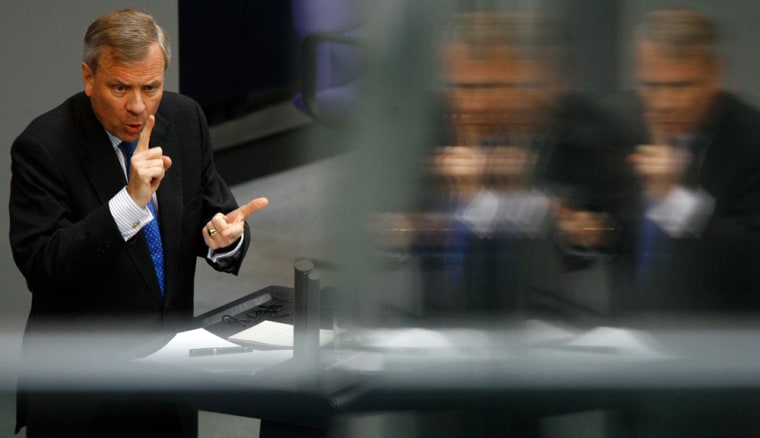NATO must expand its role in the coming decade to prepare for new threats provoked by the impact of global warming, energy shortages and the spread of nuclear technology, the alliance's top diplomat warned Tuesday.
Secretary-General Jaap de Hoop Scheffer said the alliance must look beyond the day-to-day running of its operations in Afghanistan and Kosovo and focus on longer-term threats to its 26 members
"I see no choice but to scan the strategic horizon much more thoroughly," he told a conference of security experts.
He listed five emerging threats that allied leaders will need to confront as they shape the alliance's future at NATO's 60th anniversary summit on the Franco-German border next year:
- the growing number of failed states that can provide havens for terrorists or organized crime
- the power of "non-state actors" such as terrorists, or cyber criminals
- the proliferation of weapons of mass destruction that could be exacerbated by the expanding use of peaceful nuclear energy
- risks of instability linked to scarce energy sources.
- dangers that climate change is increasing competition over water and other resources, weakening fragile states and provoking waves of migration.
"Climate change could confront us with a whole range of unpleasant developments — developments which no single nation state has the power to contain," he warned.
In response, NATO needs not only to modernize its defense system and intelligence sharing but also to boost its political role to allow allies to forge speedy and united responses to looming crises. They should also forge closer ties to other organizations such as the United Nations and European Union, as well as "partner nations" such as Russia, he said.
However, the difficulties of working with Moscow were apparent at the Security and Defense Agenda conference, where Russia's ambassador denounced NATO's eastward expansion plans and Western policy toward Kosovo.
'Bad guys from Jamaica'
Dmitry Rogozin also poured scorn on assurances that proposed U.S. anti-missile bases in eastern Europe are aimed at Iran, not Russia.
"If NATO considers the threats are coming from the south, why are you enlarging to the east? Do you have a problem with the compass?" Rogozin asked. He joked that if the U.S. was defending against Iran with missiles based in Poland, "we can install our missile defenses in Cuba or Venezuela to protect our territory against the bad guys from Jamaica."
De Hoop Scheffer appeared to take aim at ideas endorsed by Republican presidential candidate John McCain for the United States to form a global "league of democracies" that would go well beyond the trans-Atlantic alliance.
"Even 10 years from today, no other group of nations will cooperate more closely among each other (than NATO)," de Hoop Scheffer said. "No other group of nations will have the institutional toolkit that is essential to facilitate such cooperation — and the best tool is NATO."
Veteran French diplomat Benoit d'Aboville flatly rejected the idea of a new global compact of more than 100 democratic countries — a proposal gathering support in Washington.
"It will be unmanageable," said d'Aboville, an adviser to the French Foreign and Defense Ministries. "It's creating new blocs; it's creating also a kind of counter-U.N."
